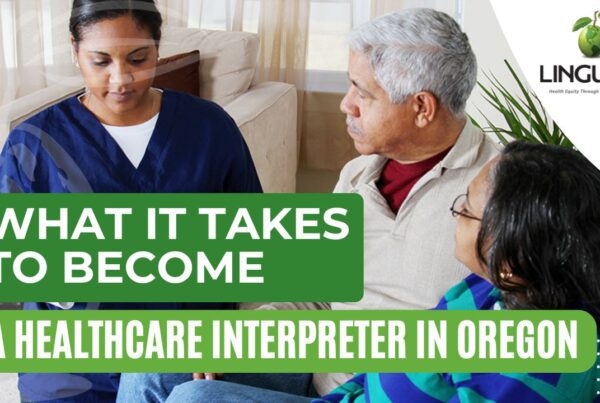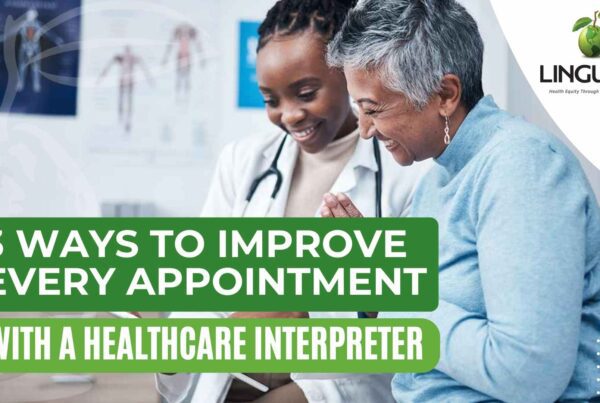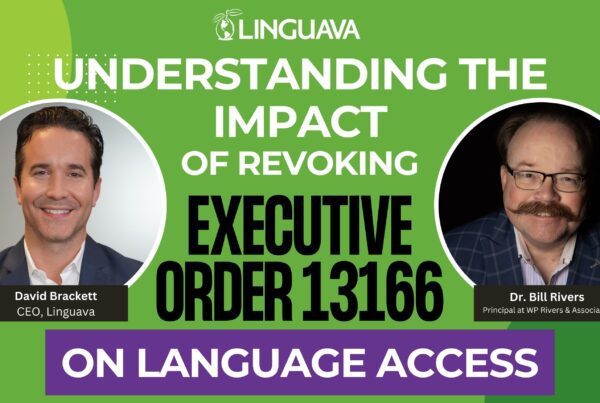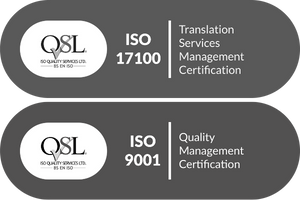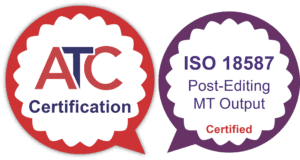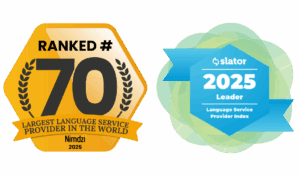In this video, Linguava CEO David Brackett reflects on a powerful moment from the 25th Annual CHIA Conference, where he moderated a keynote panel on languages of limited diffusion. He highlights an often-overlooked but urgent issue: the role of Spanish interpreters in advocating for indigenous language access in healthcare.
I recently had the honor of attending the 25th Annual CHIA (California Healthcare Interpreting Association) Conference in Los Angeles, where we celebrated a quarter-century of dedication to language access in healthcare. Events like this are a place to reconnect with industry leaders, exchange insights, and deepen our collective commitment to meaningful language access for every patient no matter what language they speak or sign.
One of the most impactful moments for me this year was moderating a keynote panel on languages of limited diffusion. I had the privilege of sharing the stage with three remarkable leaders in our field: Odilia Romero, India Sultanic, and Bindiya Jha. Each brought a wealth of experience and heart to the discussion, but one insight from Odilia was particularly a good reminder and takeaway for us all.
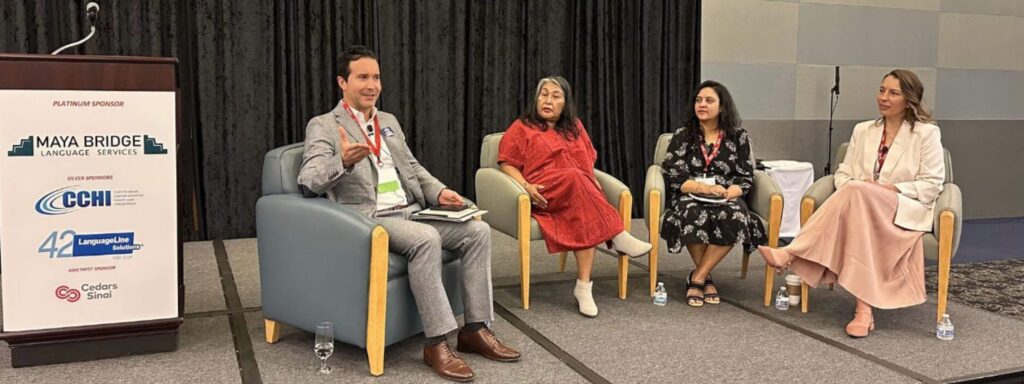
An Important Insight: Spanish Interpreters as Advocates for Indigenous Language Speakers
Odilia Romero, Born in Zoogocho, is the co-founder and executive director of Comunidades Indígenas en Liderazgo (CIELO). She is also an independent interpreter of Zapotec, Spanish, and English for indigenous communities in Los Angeles and throughout California. Mrs. Romero has over two decades of experience organizing indigenous migrant communities and advocating for language access. Towards the end of the keynote, Odilia made a compelling point: Spanish interpreters often have a unique opportunity to be the strongest allies for indigenous language speakers.
This wasn’t the comment I expected, but it was an important one.
Odilia shared a troubling yet common scenario: when an indigenous-speaking patient arrives at a healthcare facility, a Spanish interpreter is often called, not because the patient requested one, but because the provider assumed they spoke Spanish. That assumption may be based on physical appearance, regional stereotypes, or simply a lack of awareness that indigenous language interpreters are even available.
In other instances, the patient might speak some Spanish and be unaware of their right to interpretation in their native language and simply go along with it, believing Spanish is their only option.

The Critical Role of the Spanish Interpreter
This is where Spanish interpreters can make a world of difference.
When arriving on-site or connecting virtually, it’s essential for the interpreter to assess whether the patient truly speaks Spanish as their primary language. If any uncertainty arises, the interpreter should feel empowered to alert the healthcare provider and ask the patient directly if they would prefer interpretation in their native tongue.
To put this into perspective: imagine requesting a Tagalog interpreter, and a Spanish interpreter shows up instead. The two languages are entirely distinct. The same applies to indigenous languages. They are not dialects of Spanish, but entirely different languages with their own grammar and culture
A Call for Awareness and Action
In Guatemala alone, there are 22 distinct Mayan languages, spoken by over 6 million people. These communities deserve to be heard and understood in their own languages—especially in critical healthcare settings where trust, clarity, and cultural competence are essential.
As language access professionals, healthcare providers, and advocates, we must continue raising awareness, investing in training, and ensuring that our healthcare systems recognize and support linguistic diversity beyond the more common languages. Spanish interpreters, often the first to recognize a mismatch, play a pivotal role in advocating for appropriate language services.
I left the CHIA conference this year both inspired and reminded of the vital work ahead. I am reminded of one of my mentor’s Toc Soneolay-Gillespie’s presentation where she showed a photo of a broken down wheelchair. She asked the audience if we thought this would be acceptable to give to a patient. Everyone quickly quickly responded back with a resounding no it would not. Then why would we think it is okay to cut corners with language access and provide something that doesn’t work for the patient in the effort that it is “good enough.” Let’s continue building systems that honor every patient and help each patient have a seat at the table to fully participate in their healthcare.
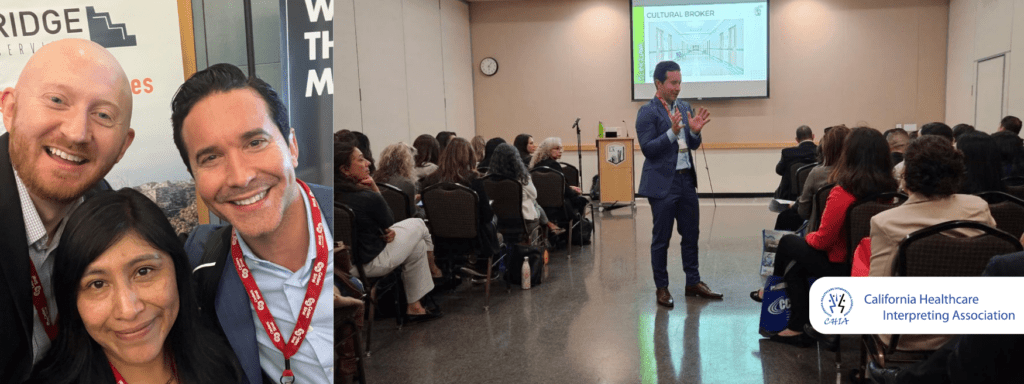
Indigenous Language Access Resources
Building equitable language access means recognizing and supporting the vast diversity of indigenous languages, many of which are still excluded from mainstream healthcare systems. Whether you’re a healthcare provider, interpreter, or language access advocate, here are trusted resources to help deepen your knowledge and expand your toolkit.
- Comunidades Indígenas en Liderazgo (CIELO)
A women-led organization committed to uplifting indigenous migrant voices through interpretation, community organizing, and language justice. Offers interpreter support and advocacy tools for Mixteco, Zapotec, and other indigenous communities. - Mayan Languages Preservation Project
Dedicated to the preservation, documentation, and revitalization of the more than 30 Mayan languages spoken across Mesoamerica. The project promotes linguistic rights and provides educational resources to support the use of Mayan languages in public and healthcare settings. - CHIA Standards for Healthcare Interpreters
Includes guidance on serving patients who speak languages of limited diffusion and best practices for interpreter advocacy. - National Council on Interpreting in Health Care (NCIHC)
Training modules and webinars related to equity in healthcare interpreting, including content on indigenous and emerging languages.
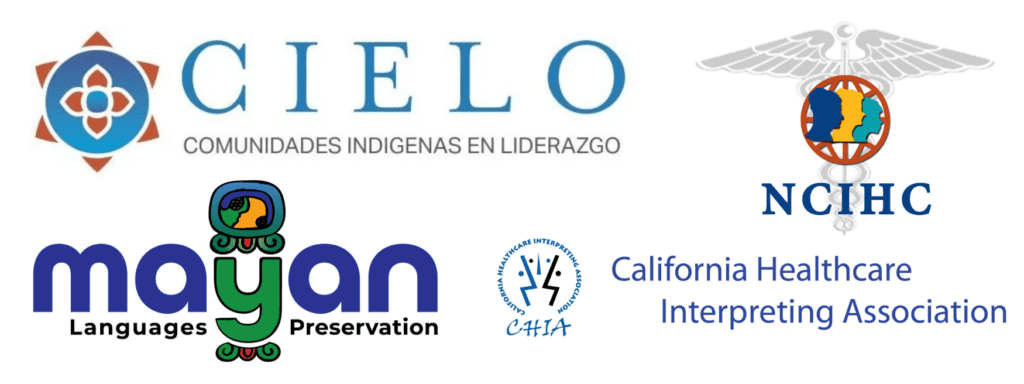
About Linguava
Linguava Interpreters has been a driving force in the medical language services industry. As a full-service language company, we offer video and telephonic interpretation, along with document translation, available around the clock. Our team comprises a diverse array of professionals committed to delivering comprehensive, responsive, and top-quality language access for patients, providers, families, and health insurance companies. We also provide client training and ongoing support, solidifying our commitment to raising the bar for language access standards. We are passionate about helping patients find their seat at the table to fully participate in their healthcare regardless of what language they speak or sign.
Have questions? Connect with us today.


